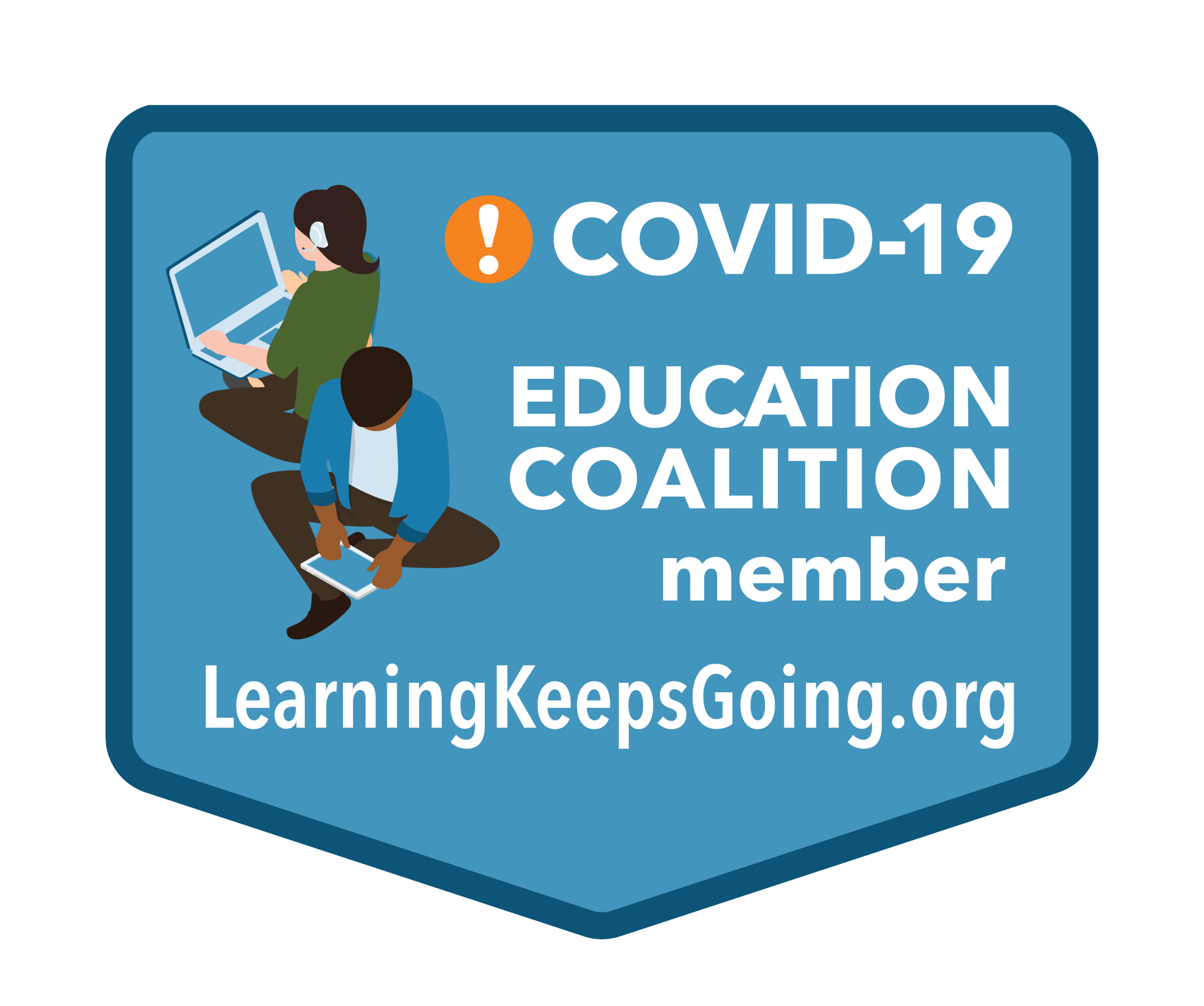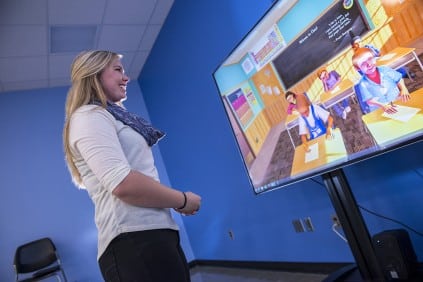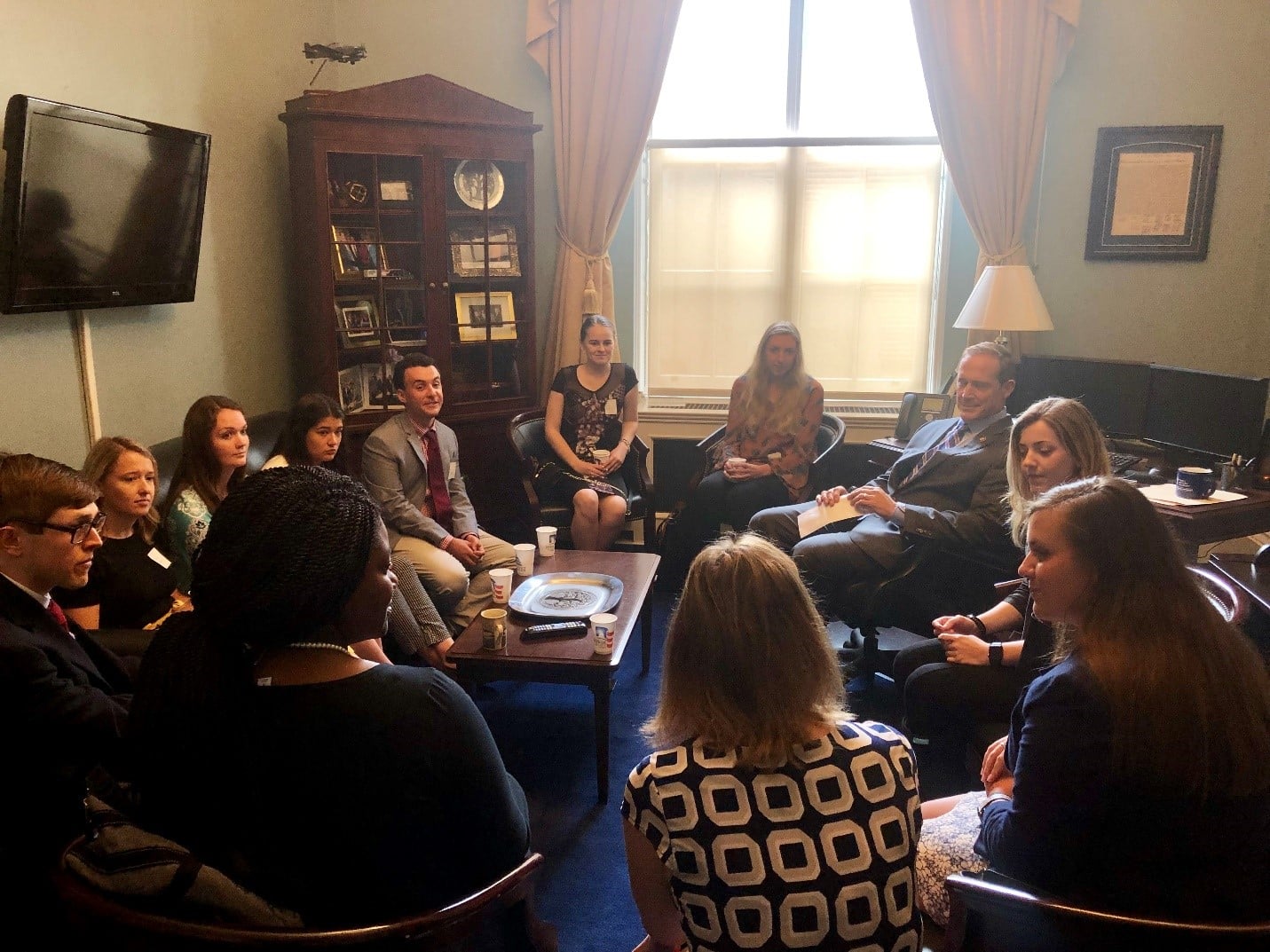30 Mar2020
AACTE Responds to COVID-19
By Jane E. West
This blog post is written by AACTE consultant Jane West and is intended to provide updated information. The views expressed in this post do not necessarily reflect the views of AACTE.
I am in awe of the incredible work of our colleague educators who are managing their ever-changing personal situations, while still stepping up to creatively deliver for our students. And hats off to Hill staff who have worked relentlessly and around the clock to put this third COVID-19 response package together.
Congress Will Pass Third COVID-19 Stimulus Bill with a Boost for Education
The frenzied activity on Capitol Hill has yielded the single largest funding bill in our nation’s history at $2 trillion.The 888 page bill—H.R. 748, the CARES Act—passed the Senate late Wednesday night with a vote of 96-0. (Four Senators were absent due to the virus, including Sen. Rand. Paul (R-KY) who has tested positive, and 3 others who are self-quarantining.) The House is looking to pass the bill today [Friday, March 27], hoping that a voice vote will work—meaning that no Member of the House would object. President Trump has indicated that he will sign the bill.
27 Mar2020
AACTE Responds to COVID-19
By Katrina Norfleet
 To assist education institutions in transitioning to temporary remote instructions of classroom-based courses, Quality Matters (QM) has created an “Emergency Remote Instruction (ERI) Checklist.” The three-tiered list includes considerations, tips, and actionable strategies, according to prioritized needs. The QM ERI Checklist is organized into three columns to first provide instructors with recommended actions, then add a brief explanation of the action’s importance and impact, and finally, a column to reference related Specific Review Standards from the QM Higher Education Rubric™, Sixth Edition.
To assist education institutions in transitioning to temporary remote instructions of classroom-based courses, Quality Matters (QM) has created an “Emergency Remote Instruction (ERI) Checklist.” The three-tiered list includes considerations, tips, and actionable strategies, according to prioritized needs. The QM ERI Checklist is organized into three columns to first provide instructors with recommended actions, then add a brief explanation of the action’s importance and impact, and finally, a column to reference related Specific Review Standards from the QM Higher Education Rubric™, Sixth Edition.
This checklist is a useful tool for individual faculty as a prioritized checklist for remote teaching and as guidance for instructional designers and/or educational technologists who are working with faculty in a rapid development process to temporarily move classroom instruction online.
Below is an abbreviated list of the “Recommended Actions for Instructors.” For access to the complete tool, link to QM Emergency Remote Instruction Checklist.
27 Mar2020
AACTE Responds to COVID-19
By U.S. Department of Education
 U.S. Secretary of Education Betsy DeVos announced today that the office of Federal Student Aid is executing on President Donald J. Trump’s promise to provide student loan relief to tens of millions of borrowers during the COVID-19 national emergency.
U.S. Secretary of Education Betsy DeVos announced today that the office of Federal Student Aid is executing on President Donald J. Trump’s promise to provide student loan relief to tens of millions of borrowers during the COVID-19 national emergency.
All borrowers with federally held student loans will automatically have their interest rates set to 0% for a period of at least 60 days. In addition, each of these borrowers will have the option to suspend their payments for at least two months to allow them greater flexibility during the national emergency. This will allow borrowers to temporarily stop their payments without worrying about accruing interest.
27 Mar2020
AACTE Responds to COVID-19
By Karen Shrayer
The response to COVID-19 has impacted virtually every industry in this unprecedented time, and the publishing industry is no exception. Here at SAGE Publishing, proud partner of AACTE and publisher of the Journal of Teacher Education, we’ve focused our response on supporting the higher education teaching and research communities we serve as we navigate this difficult time together.
We are committed to doing what we can to support the researchers, teachers, and students in our community. We know that the work of the research and teaching community will be critical to addressing the challenge of COVID-19, and we’re happy to share the resources we have with the readership of the Ed Prep Matters blog.
27 Mar2020
AACTE Responds to COVID-19
By AACTE

The following AACTE Statement was sent to the National Governors Association.
During the health emergency of COVID-19, AACTE is encouraging its members, as well as states and districts, to explore partnerships between district and educator preparation programs to address the increased workforce demands for special educators in our nation’s schools. In particular, we urge stakeholders to
Identify opportunities for special education teacher candidates to continue their contributions to educational opportunities for students with disabilities (e.g. clinical practice opportunities or paraprofessionals in temporary positions) for the duration of the impact of COVID-19 on our school system.
27 Mar2020
AACTE Responds to COVID-19
By Thomas Rodgers
 AACTE has joined this coalition to provide support to the nation’s teacher leaders and educators during the coronovavirus pandemic.
AACTE has joined this coalition to provide support to the nation’s teacher leaders and educators during the coronovavirus pandemic.
The International Society for Technology in Education (ISTE), an education nonprofit that works with the education community to accelerate the use of technology to solve tough problems and inspire innovation, today announced the launch of COVID-19 Education Coalition—a diverse group of education organizations focused on curating, creating, and delivering high-quality tools and support for educators as they keep the learning going during extended school closures caused by the global pandemic.
“In this time of uncertainty and rapid change, school system leaders and educators are being inundated with information. This is an effort to cut through the noise, and provide a coordinated response to the urgent need for accurate information, responsive professional learning and contextualized resources,” said Richard Culatta, CEO of ISTE. “We’re coming together with over 50 of education’s trusted associations and nonprofit organizations to help ensure educators have what they need to support students and families.”
26 Mar2020
AACTE Responds to COVID-19
By Deborah Koolbeck
On March 25, 2020, the U.S. Senate passed the bipartisan third stimulus bill known as the Coronavirus Aid, Relief, and Economic Security Act, aka the CARES Act. The U.S. House of Representatives will take up the measure on March 27, sending it to the president for his signature. At this point in time, conversations are beginning on whether or not a fourth stimulus package is necessary.
Read the full CARES Act.
Read the Title-by Title Summary
The CARES Act includes the following in regard to education:
Funding
Education Stabilization Fund: This includes flexible funding that will get out the door quickly and go directly to states, local school districts, and institutions of higher education to help schools, students, teachers, and families with immediate needs related to the coronavirus, including:
24 Mar2020
By Lisa Dieker

The University of Central Florida (UCF) has moved their work with TeachLivE to remote servers to allow teacher candidates throughout the duration of the COVID-19 Pandemic to use simulations of classrooms to observe student teaching competencies. UCF invites teacher educators from other teacher training institutions to use the TeachLivE platform.
TeachLivE now has the capability to observe student teachers interacting with elementary (option for inclusive setting), middle, and high school (option for inclusive setting) classrooms. Users may request English Language Learning avatars (Spanish).We also support preparation for parent-teacher and teacher-principal conferences. These virtual simulations can occur with an instructor observing a prospective teacher interacting remotely with students in one of the TeachLivE environments or used in an online setting with peers watching each other to provide feedback. The instructor can record data about specific student teaching competencies and providing feedback to the prospective teachers.
23 Mar2020
AACTE Responds to COVID-19
By Deborah Koolbeck
As the United States responds to the COVID-19 pandemic, federal agencies connected to the education and care of our nation’s higher education and PK-12 students are releasing information and guidance for taking action, as well as flexibilities and waivers offered.
The U.S. Department of Education offered a phone call to K-12 stakeholder on Friday March 20, 2020, with officials from the Department, the CDC, and the U.S. Department of Agriculture. The Department has posted a readout of the call, with links to resources on servicing students with disabilities, student loan relief, student privacy, and more.
Main Links for COVID-19 Information
U.S. Department of Education
U.S. Department of Agriculture Food and Nutrition Service
Centers for Disease Control
23 Mar2020
AACTE Responds to COVID-19
By Jane E. West
This blog post is written by AACTE consultant Jane West and is intended to provide updated information. The views expressed in this post do not necessarily reflect the views of AACTE.
Washington Continues to Respond to the Coronavirus Epidemic
The Congress and federal agencies are likewise making changes by the moment. A 50,000 foot overview includes the following.
Legislative activity
- On March 6, Congress passed the first COVID-19 stimulus bill – an $8 billion package to help states and localities address the pandemic.
- On March 18, Congress passed the second COVID-19 relief package, which ensures paid sick leave to certain employees, expands SNAP and Medicaid, and provides emergency assistance.
- Congress is now considering the third COVID-19 relief package, a measure which will total between one and two trillion dollars and may address issues as far reaching as increases in unemployment insurance payments, financial assistance for hospitals and health care providers, a “state stabilization fund,” direct cash payments of $1,200 per qualified person, small business guaranteed loans, and billions in loans for industries, such as airlines. Provisions related to education are also on the menu, as described in the next article.
23 Mar2020
By U.S. Department of Education
 U.S. Secretary of Education Betsy DeVos announced today the Department has released new information clarifying that federal law should not be used to prevent schools from offering distance learning opportunities to all students, including students with disabilities. This new resource from the Office for Civil Rights (OCR) and the Office of Special Education and Rehabilitative Services (OSERS) explains that as a school district takes necessary steps to address the health, safety, and well-being of all its students and staff, educators can use distance learning opportunities to serve all students.
U.S. Secretary of Education Betsy DeVos announced today the Department has released new information clarifying that federal law should not be used to prevent schools from offering distance learning opportunities to all students, including students with disabilities. This new resource from the Office for Civil Rights (OCR) and the Office of Special Education and Rehabilitative Services (OSERS) explains that as a school district takes necessary steps to address the health, safety, and well-being of all its students and staff, educators can use distance learning opportunities to serve all students.
“It was extremely disappointing to hear that some school districts were using information from the Department of Education as an excuse not to educate kids,” said Secretary DeVos. “This is a time for creativity and an opportunity to pursue as much flexibility as possible so that learning continues. It is a time for all of us to pull together to do what’s right for our nation’s students.”
23 Mar2020
AACTE Responds to COVID-19
By Allison Blosser

Last May on Capitol Hill, a congressman sat in a corner of his office, while nine of my students, his congressional aide, and I sat in a circle around him. My students, all preservice teachers, shared story-after-story from their classrooms, trying to illustrate how tough it is to be a teacher. With grace and conviction, they explained how in the course of their student teaching, they realized there is still more they need to learn in order to be able to do their jobs well. They looked the Congressman in the eyes and told him that without funding for Title II and a federal commitment to developing them as professionals, they were not sure that they would be equipped to stay in the field, much less teach in the congressional representative’s state, since it’s a state that allocates almost nothing for teacher development.
23 Mar2020
AACTE Responds to COVID-19
By Jennie Carr
Like most of you, I got the email from our president one afternoon last week expressing that our institution was transitioning to remote learning. Instantly, my heart dropped and a zillion thoughts started running through my head. How will I ensure my students get a good experience? What about all my interactive learning experiences? What if my student doesn’t have access to the internet? How am I going to do this?”
After a little reflection, I realized we tell our students not to panic when we assign them a task or assignment that to them seems unforeseeable (the first time they’ve written a 20-page paper or presented for 30 whole minutes). Moving to remote learning may seem unforeseeable to you. However, I urge you to take a breath. Instead of panicking or being irritated, consider an alternative perspective:
This is a chance to try something new. You can take advantage of this unique opportunity. There are dozens of online platforms that have generously offered services for free to support students and faculty during the COVID-19 pandemic. I’ve been desperate to try these platforms but I have not had the time or the financial resources. Personally, I love instructional technology. The past few days I have been like a kid in a candy shop. I cannot wait to explore these pedagogical tools. Consider going back through your emails and pick one to try. Maybe it will rejuvenate you!
20 Mar2020
AACTE Responds to COVID-19
By Ward Cummings
A series of unprecedented events are forcing states across the country to close schools and universities. As school leaders scramble to identify pathways and strategies to protect the health of students and staff, many of them must also attend to the unique challenges of their teaching students who are in limbo because of the coronavirus crisis.
Many states have not yet provided guidance to schools of education on how to lead and advise this special class of students. As a result, many teacher candidates are waiting to learn how, or even if, they will be able to fulfill the requirements of their programs and graduate. Given the unparalleled nature of events, it is understandable if some states are not fully prepared to address this specific concern, but there are a few notable exceptions. In the absence of legislative guidance, states like California, Kentucky, Iowa, and South Carolina have instructively addressed the most pressing concerns pertaining to teacher preparation in their states.
The California Commission on Teacher Credentialing maintains and up-to-date webpage where they attempt to answer the most common questions from educators and employing agencies regarding credentialing requirements, policies, and application procedures. The Commission is particularly concerned about candidates’ ability to complete clinical practice and performance assessment requirements during this academic year, and is looking for ways to mitigate this situation. It has prepared a memo to help guide the decision-making by deans and directors of education on the subject.
16 Mar2020
AACTE Responds to COVID-19
By Jane E. West

This blog post is written by AACTE consultant Jane West and is intended to provide updated information. The views expressed in this post do not necessarily reflect the views of AACTE.
Congress is working to respond to the pandemic on multiple levels. To date seven members of Congress have announced that they have been exposed to someone with COVID-19 and are self-quarantining. A staff member of Sen. Maria Cantwell (D-WA) has tested positive for the virus and Sen. Cantwell has closed her office. The U.S. Capitol has ceased public tours, both those member and staff led. The Capitol complex, including House and Senate office buildings, is restricted to official business only. Rep. Dean Phillips (D-MN) noted “We should encourage people to not travel here right now.” Washington, DC Mayor Muriel Bowser has declared the District a state of emergency and limited gatherings. Likewise, the Governors of Maryland and Virginia have declared states of emergency and limited gatherings.







 To assist education institutions in transitioning to temporary remote instructions of classroom-based courses,
To assist education institutions in transitioning to temporary remote instructions of classroom-based courses,  U.S. Secretary of Education Betsy DeVos announced today that the office of Federal Student Aid is executing on President Donald J. Trump’s promise to provide student loan relief to tens of millions of borrowers during the COVID-19 national emergency.
U.S. Secretary of Education Betsy DeVos announced today that the office of Federal Student Aid is executing on President Donald J. Trump’s promise to provide student loan relief to tens of millions of borrowers during the COVID-19 national emergency.
 AACTE has joined this coalition to provide support to the nation’s teacher leaders and educators during the coronovavirus pandemic.
AACTE has joined this coalition to provide support to the nation’s teacher leaders and educators during the coronovavirus pandemic.

